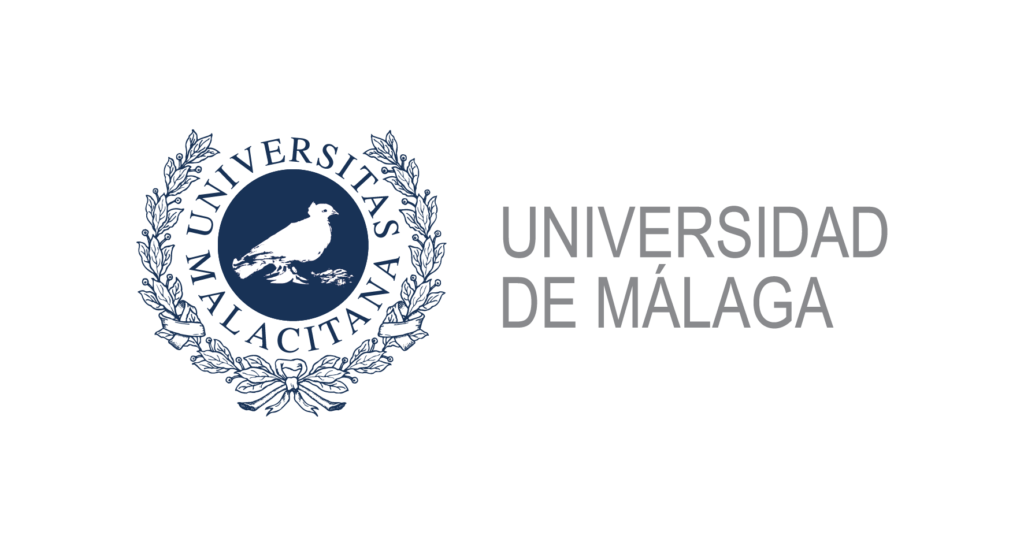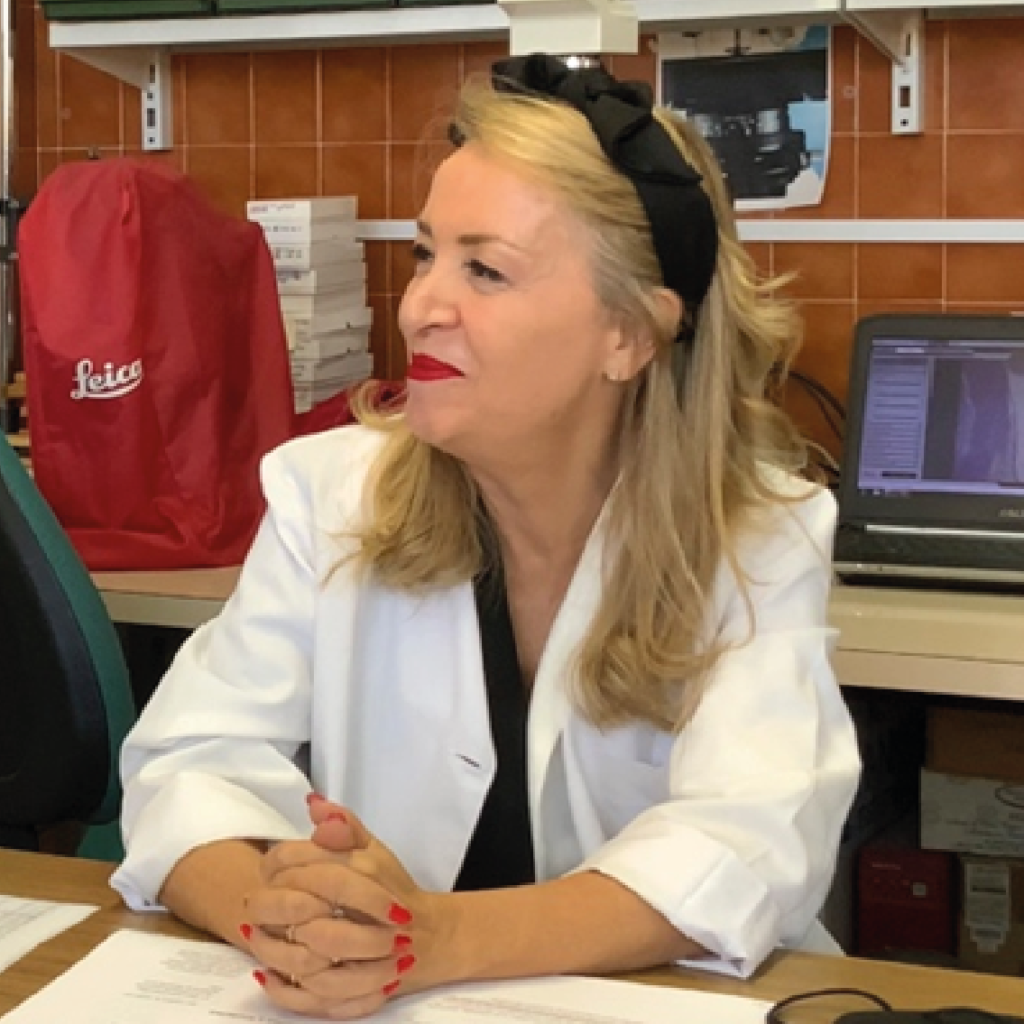
A Victoria de Andrés is associated professor of Animal Biology at the University of Málaga, Spain. Graduated (1985) and doctorated (1990) in Biological Sciences at the University of Málaga, postdoctoral stays at the University of Salford (UK) (1990/92) and with biosanitary speciality in Clinical Analysis (1995). She has collaborated with Université Pierre et Marie Curie and University of Toledo (Ohio, EEUU). Her research in developmental and evolutionary biology in elasmobranchs led her to the founding and direction of Purificell, a company dedicated to the purification of mesenchymal cells for intraoperative autotransplants aimed at tissue regeneration in humans.
In recent years she has carried out intense scientific communication work, being director of the “Ciencia sin Límites” program and science columnist. Her articles are published in 136 newspapers and magazines in 19 countries. She is the most read author at the UMA and is currently writing her first book commissioned by Editorial Tusquets for Metatemas.
As a curiosity, she also has a degree in Art History (2014).
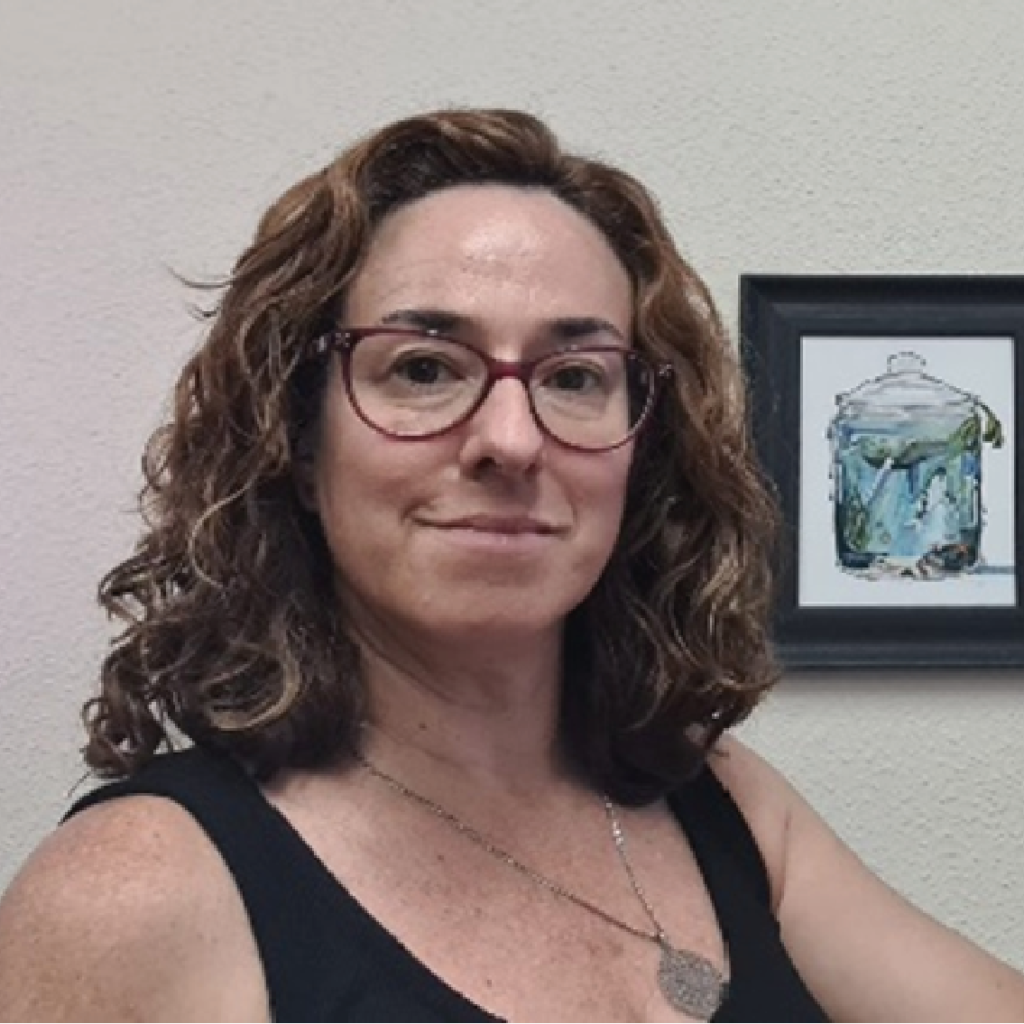
She graduated in Biological Sciences at the University of Málaga (1999), she did part of her Ph.D. at the Complutense University of Madrid and defended her doctoral dissertation at the University of Málaga (2006), including a predoctoral stay at the Netherlands Institute of Ecology (2005). She was awarded the 2017 prize for best doctoral thesis on Sciences at the University of Málaga. Her research focuses in understanding the adaptation of cyanobacteria and microalgae to new contaminants and other selective pressures related to climatic and environmental alterations, using the experimental evolution approach.
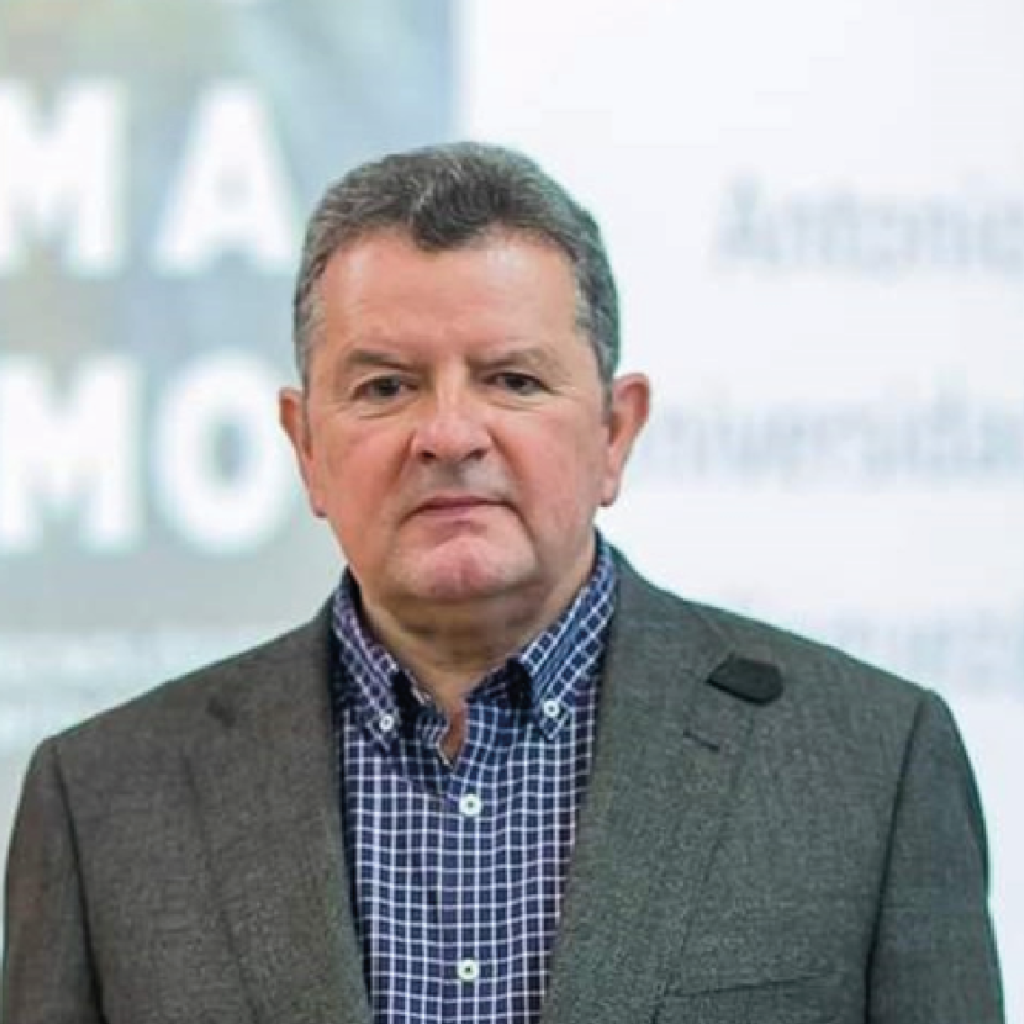
Antonio Diéguez is professor of Logic and Philosophy of Science at the University of Málaga, Spain. He is member of the Academia Malagueña de Ciencias. He has been academic visitor at the University of Helsinki, Harvard University, and University of Oxford. He was the first elected president of the Sociedad Iberoamericana de Filosofía de la Biología (AIFIBI), from 2012 to 2015. He is currently a member of the Spanish Research Ethics Committee.
His research interests are in the fields of Philosophy of Technology and Philosophy of Biology, working especially on the scientific realism debate, the analysis of technological determinism, the explanatory use of models in Biology, and the philosophical implications of the evolutionary explanation of mind. He published a book on this last topic: “La evolución del conocimiento: De la mente animal a la mente humana” (2011). In recent years, he has been interested in transhumanism and human bioenhancement, and has published two books, “Transhumanismo. La búsqueda tecnológica del mejoramiento humano” (2017), and “Cuerpos inadecuados” (2021). His position in this regard is critical, but recognizing the positive future effects of biotechnology.
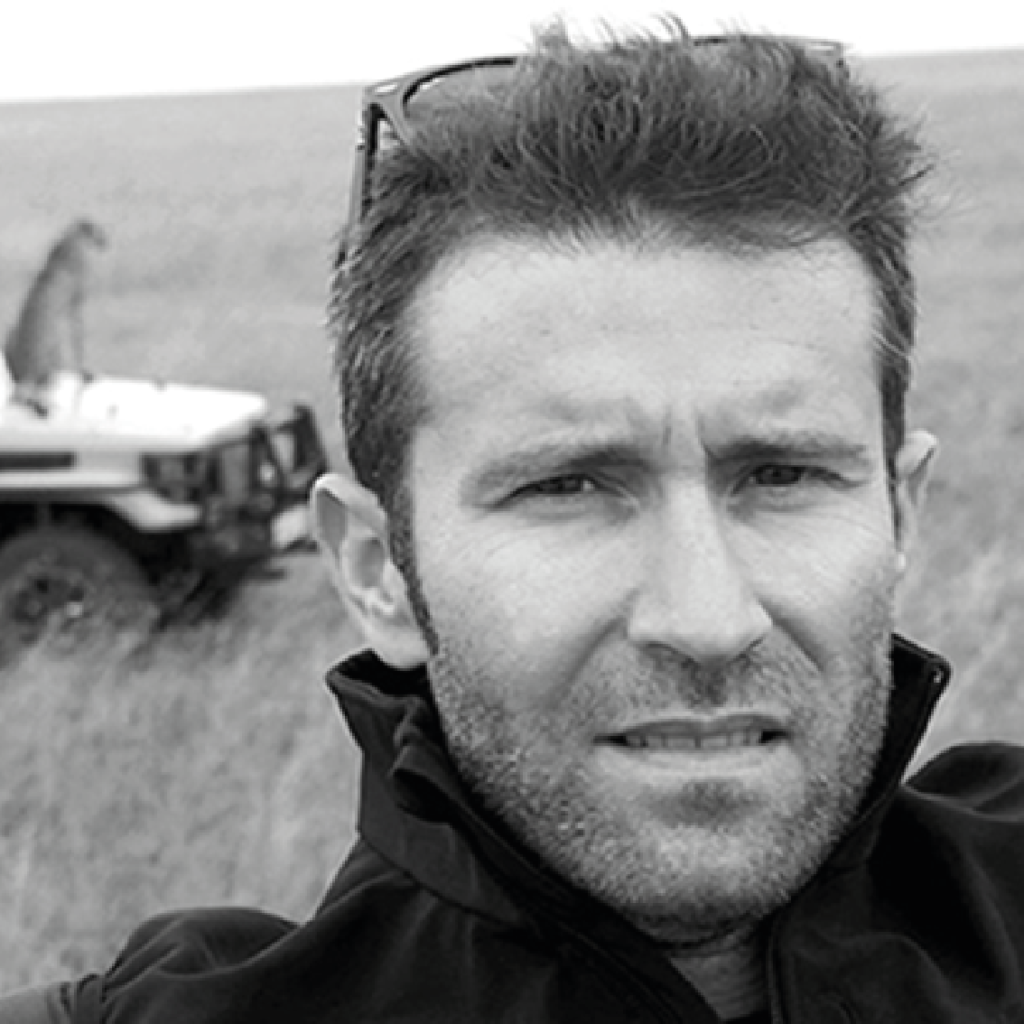
He graduated in Biological Sciences at the University of Valencia (2004), and he did his Ph.D. at the University of Málaga (2009), including predoctoral stays at the Natural History Museum of New York (2006), and the Natural History Museum of London (2007). Later, he obtained a Fulbright postdoctoral grant (2010-2012) to work at Brown University (Providence; Rhode Island). His research focuses in understanding the influence of climatic and environmental alterations on the Evolution and Ecology of mammals, using the fossil record.
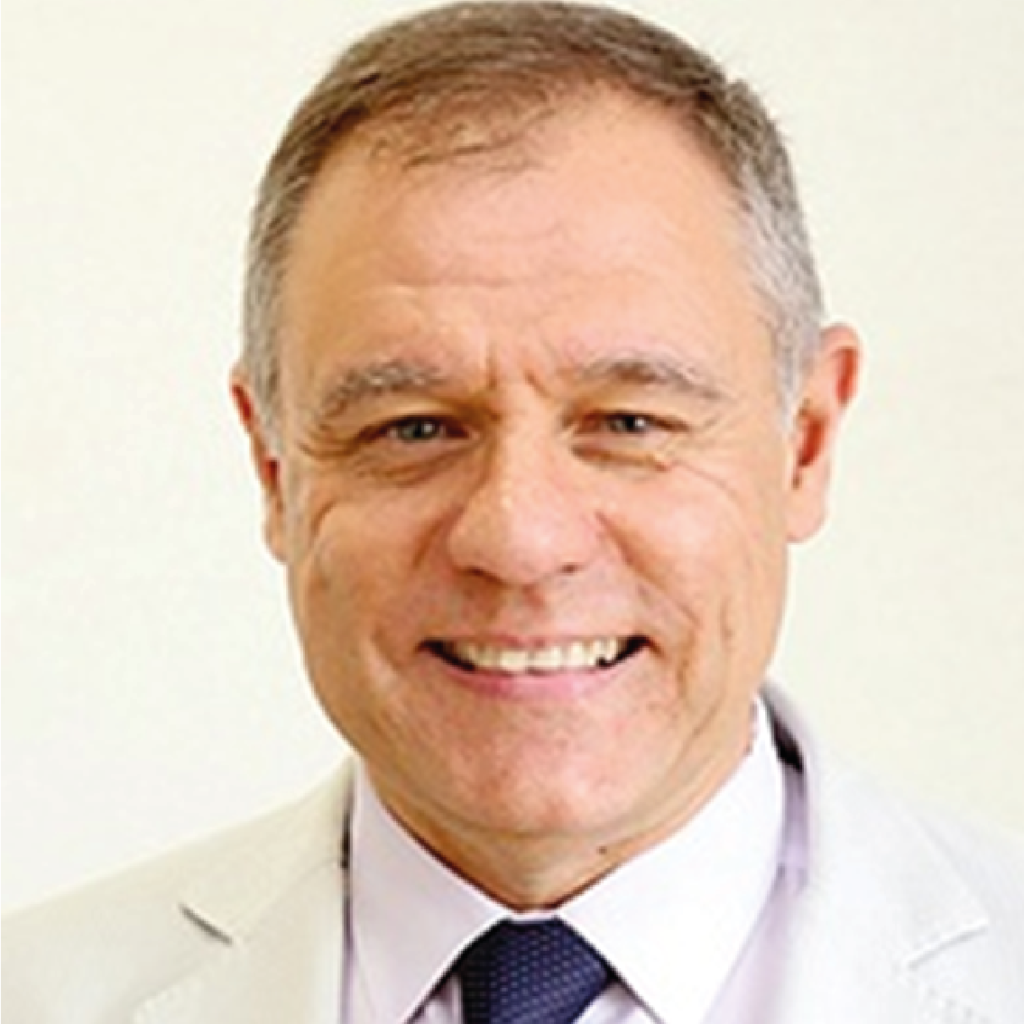
Full Professor of Botany at the University of Malaga since 2008. My first research line (starting in 1990) focused on ecophysiology of seaweeds. From 2002 onwards, I began a line of experimental evolution of photosynthetic microorganisms. The main aim has been to analyze the tolerance of cianobacteria and microalgae to different natural extreme waters via mutation-selection. Secondly, we addressed the contribution of adaptation, historical contingency and chance in the evolution under selection resembling future scenarios of global change. Linked to research, I have stayed at institutions in France (Laboratoire Arago, Université Paris VI), Sweden (Upssala Universitet), England (Robert Hill Institute, University of Sheffield), Germany (Alfred Wegener Institute für Polar und Meeresforschung), Japan (Kobe University Research Center for Inland Seas) and Australia (Australian Institute for Marine Science).
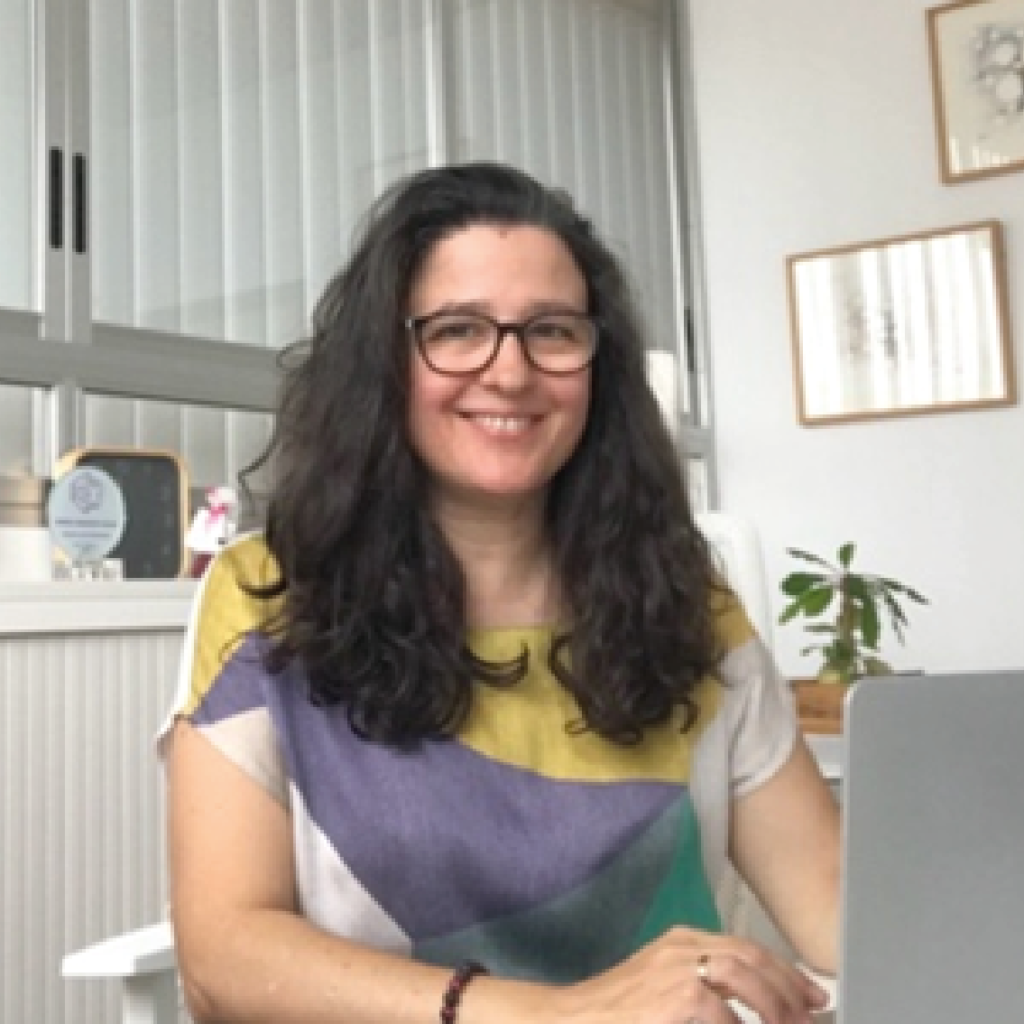
PhD in Biology from the University of Santiago de Compostela. She did predoctoral stays at the University of Lund (Sweden) and postdoctoral stays at the University of Manchester (UK) and Centro de Biología Molecular “Severo Ochoa” (CBMSO-UAM-CSIC, Madrid). In 2004 she joined the University of Málaga with a “Ramón y Cajal” contract and since 2010 she is Associate Professor of Genetics. Her current research focuses on the study of the evolution of quasispecies of RNA viruses and single-stranded DNA viruses, the mechanisms that introduce genetic variability in the viral genome and elucidating the molecular basis of the antiviral strategy known as lethal mutagenesis. She is member of the outreach project “Encuentros con la Ciencia“ and coordinates the “Como Tú” project.
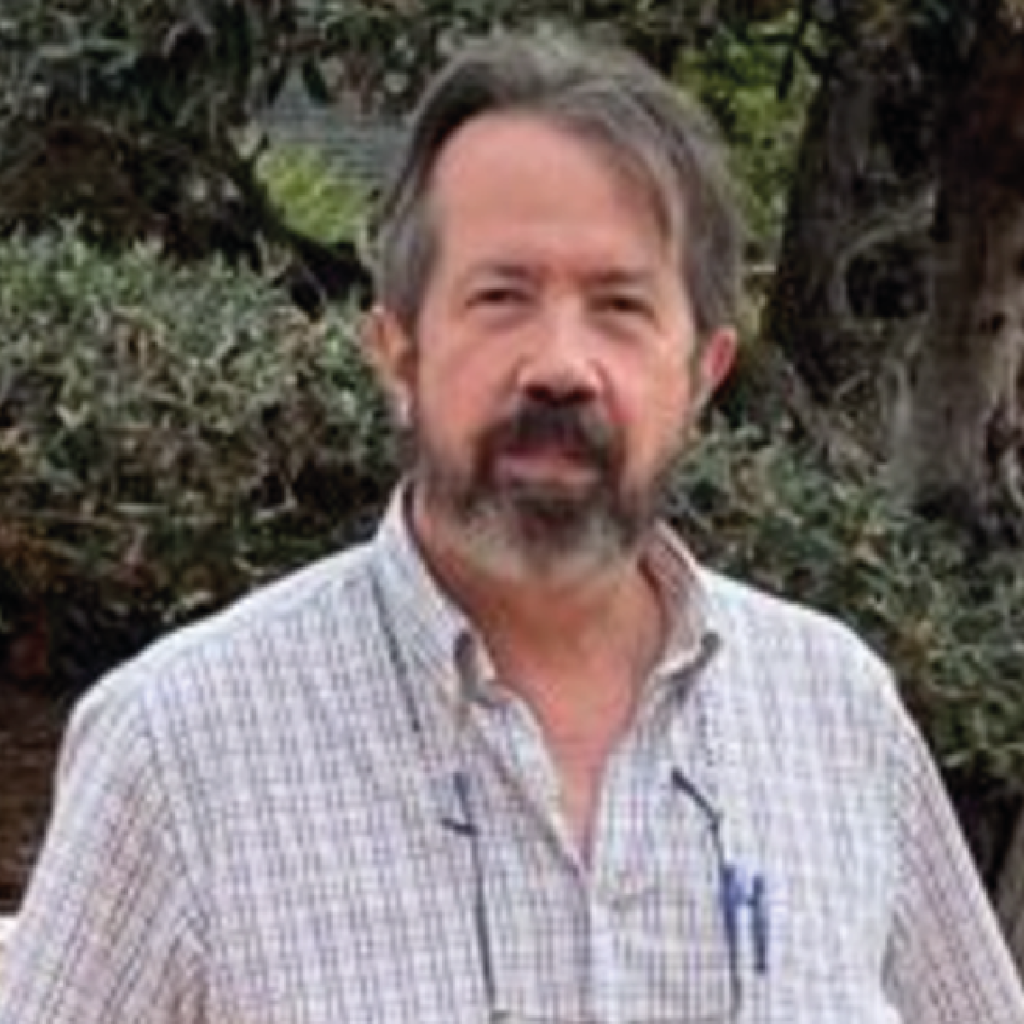
Graduated (1984) and doctorated (1987) in Biological Sciences at the University of Málaga, he did postdoctoral stays at the Centre of Molecular Biology (CSIC, Madrid) with García-Bellido (1987-1991), Ottawa Civic Hospital (Ottawa, Canada) (2000) with Marie Andrée Akimenko, Konstanz University (2001-2003) with Axel Meyer, and he has collaborated with Phillipe Janvier at the National Museum of Natural History in Paris, France (2012). His research currently focuses in using zebrafish to understand the evolution of homoplastic characters in fishes and the evolutionary appearance of vertebrate skeletal dysplasias using comparative embryology and molecular genetics.
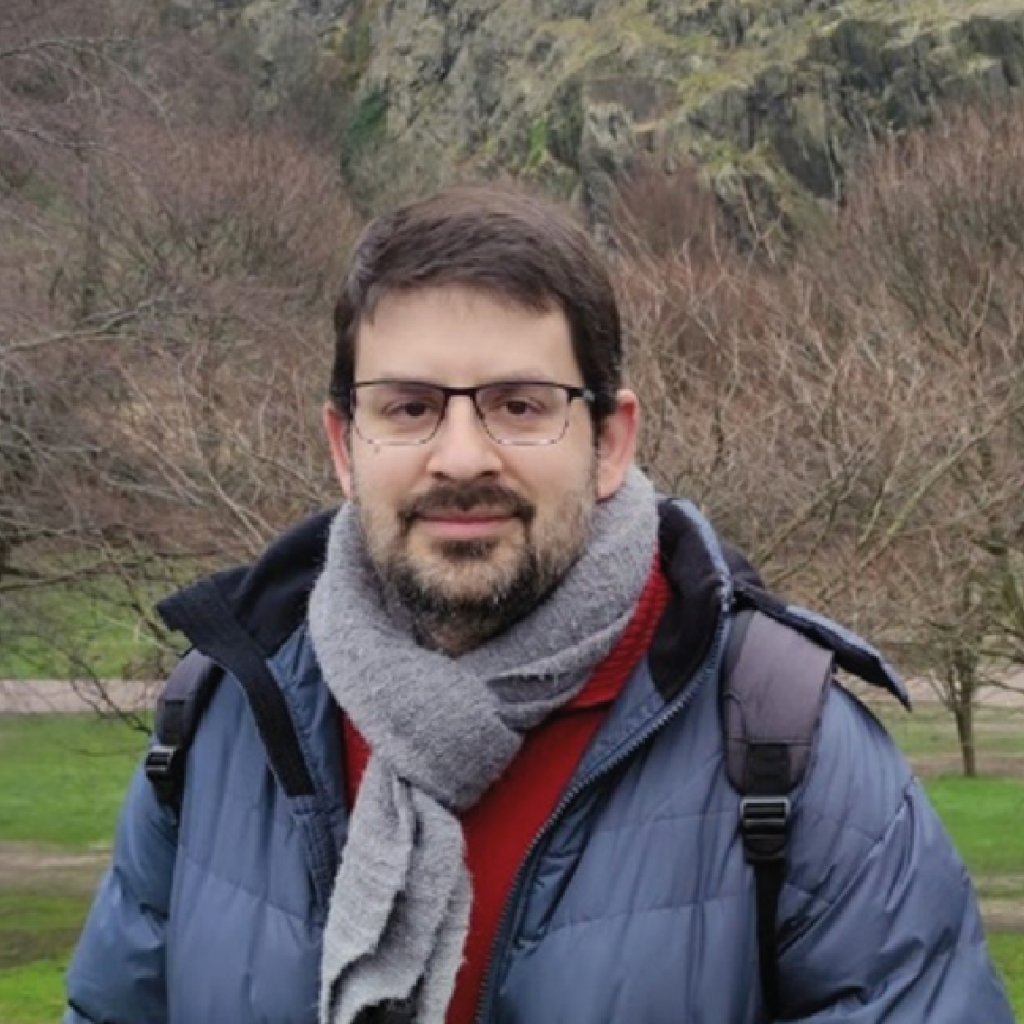
He graduated in Biological Sciences at the University of Málaga in 2007, and he finished his Ph.D. at the University of Málaga in 2015. He did a predoctoral stays at the American Museum of Natural History (New York City, USA) in 2010. Afterwards, he obtained a grant as a Postdoctoral Research Assistant for an ERC-Starting-Grant project at the University of Oxford (UK) during 2017 and 2018. His research focuses in exploring the role of adaptations and constraints in shaping the phenotypic evolution of the skeleton of living and extinct mammals, with a special emphasis on limbs and spine.
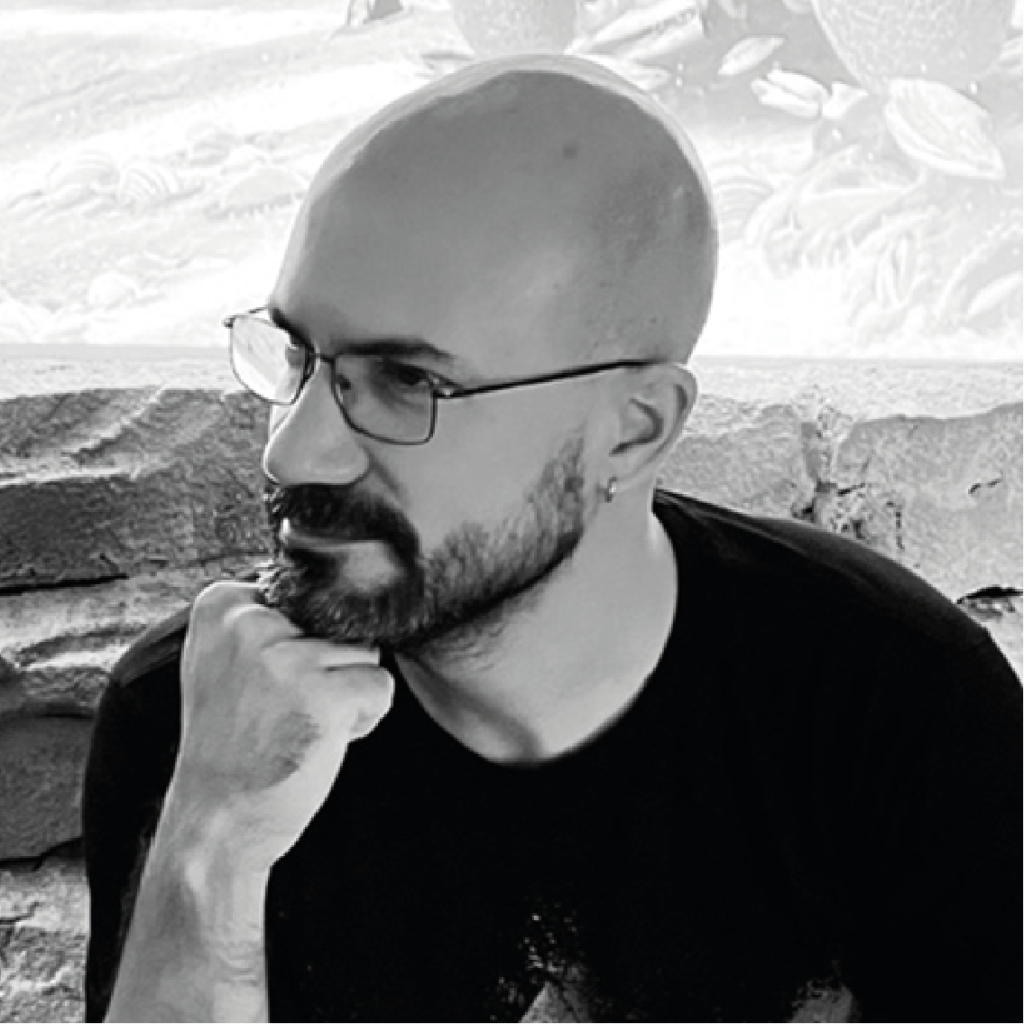
Champi is an evolutionary developmental biologist fascinated by vertebrates and their morphological diversity and evolution. Limbs, wings, jaws, and feathers are just a handful of examples of specific novel traits exhibited by vertebrates. How did these evolve? What changes in their genomes can explain their origin? During his research career he has aimed to provide novel answers to these questions using comparative genomics and transcriptomics within the field of Evo-devo (Evolutionary Development). After obtaining his PhD in the lab of Jordi Garcia-Fernàndez at the University of Barcelona, working with the cephalochordate amphioxus, he moved to the RIKEN Institute in Japan, where he worked on early vertebrates. Recently, he obtained a Senior Beatriz Galindo position at the University of Málaga, where he studies the origin and evolution of metazoan cardiovascular systems.
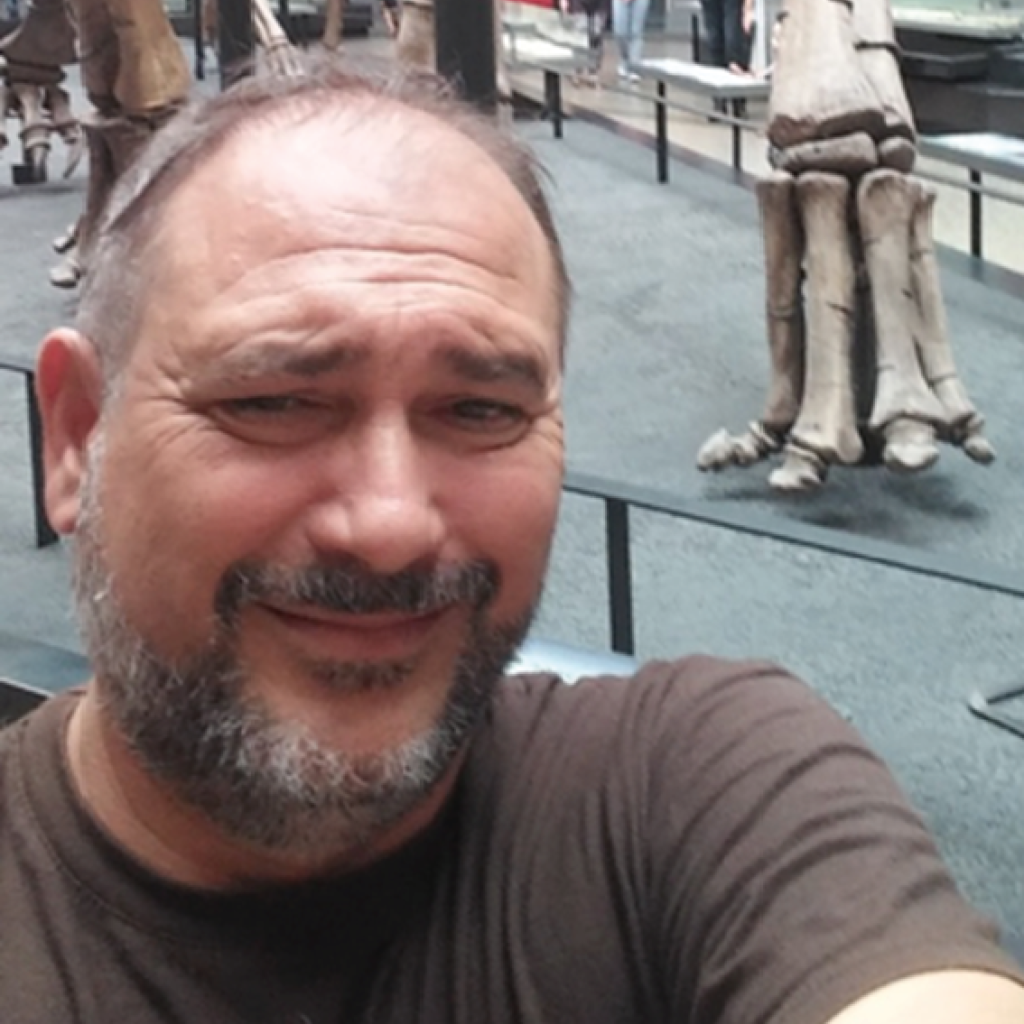
He graduated in Biological Sciences (1989) and obtained his Ph.D. degree (1999) at the University of Málaga. Later, he obtained a postdoctoral grant (2001-2003) to research at the Heidelberg University (Germany). His research focuses in ammonoid evolution and Ecology of mammals using morphometric tools.
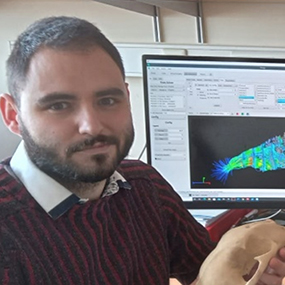
Postdoctoral researcher with PAIDI contract (2022-2025) by the Junta de Andalucía, Spain. Researcher of the Department of Ecology and Geology in the Paleontology Area of the University of Málaga. Researcher associated to Jack Tseng’s research group in the Department of Integrative Biology. Collaborating researcher in Markus Bastir’s projects at the MNCN-CSIC and with Manuel Burgos Olmos at the Polytechnic University of Cartagena (Flowgy software). PhD in evolutionary biology (2020) of physiological processes in the adaptation to extreme environments using large mammals as a study. Specialized in computational methods in both anatomy and virtual analysis such as kinematic processes (ROM), finite element analysis (FEA) in biomechanics and computational fluid dynamics (CFD) for biological processes of respiration and metabolism. Collaborating institutions such as the National Accelerator Center (CNA), the University of Copenhagen, and the Ascires (Valencia) and Vithas (Malaga) medical centers. Prestigious grants such as European Synthesis in 2016, Museum of Natural History, Budapest, Hungary; 2022 at the Museum of Natural History in Paris, France; and 3 months mobility grants in the United States at AMNH in NYC and the Smithsonian Institution in Washington DC, USA.
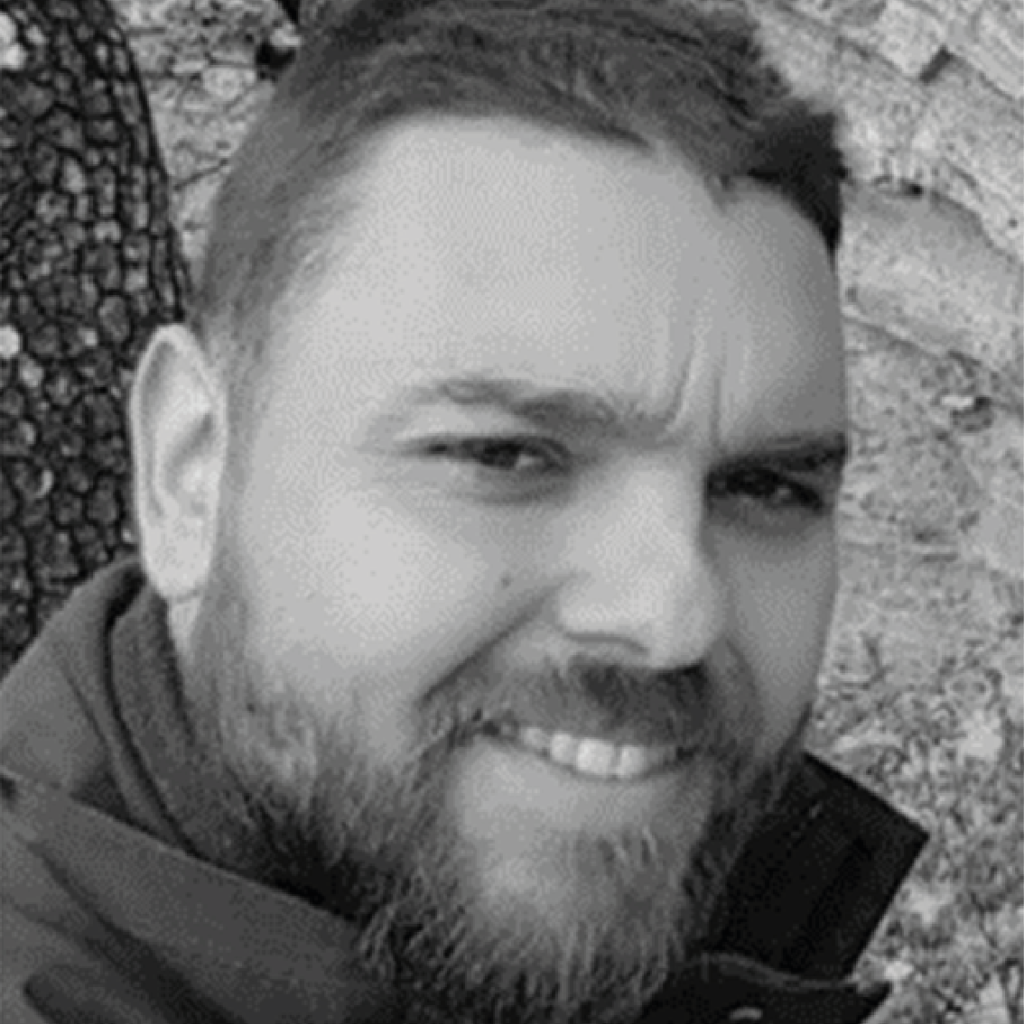
BSc in Biology (2008), predoctoral fellowship FPI (2010-2014) and PhD (2015) at University of Malaga. Master/DEA in Paleontology at Universidad Autónoma de Madrid (2009-2010). Predoctoral stays at University of Washington, USA (2011), and Institute of Vertebrate Paleontology and Paleonanthropology, China (2012). Postdoctoral Fellowship (2015-2019) and Research Associate (from 2019) at Natural History Museum of Los Angeles County (California, USA). Juan de la Cierva-Incorporación fellow (2019-2021) at Spanish Royal Academy of Sciences (Madrid). His main research is focused on the evolution of flight in birds and dinosaurs, covering from 150-million-years old fossils until modern species.
Scientific Committee
Isabel Almudí Cabrero (Universitat de Barcelona)
Elena Bañares España (Universidad de Málaga)
Pau Carazo Ferrandis (Universidad de Valencia)
Borja Figueirido Castillo (Universidad de Málaga)
Antonio Flores Moya (Universidad de Málaga)
María Jesús García Sánchez (Universidad de Málaga)
Iván Gómez Mestre (Estación Biologógica de Doñana)
Cristina Grande Pardo (Universidad Autónoma de Madrid)
Ana Grande Pérez (Universidad de Málaga)
Ester Lázaro Lázaro (Centro de Astrobiología, CSIC-INTA)
Jennifer A. Leonard (Estación Biológica de Doñana, CSIC)
Manuel Marí-Beffa (Universidad de Málaga)
Antonio J. Matas Arroyo (Universidad de Málaga)
Juan Pascual-Anaya (Universidad de Málaga)
Juan Antonio Pérez Claros (Universidad de Málaga)
José María Pérez-Pomares (Universidad de Málaga)
Enrique Viguera Mínguez (Universidad de Málaga)
María Ángeles Viruel Zozaya (IHSM “La Mayora”, UMA-CSIC)

